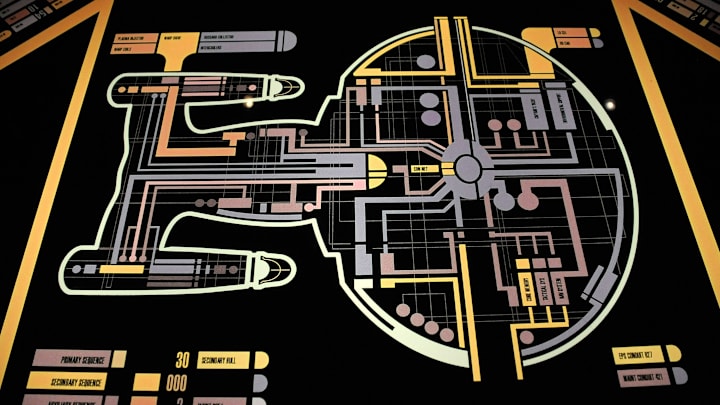Why does Starfleet employ so many humanoids instead of a fully automated fleet? The real answer is simple: it's television! Audiences don't care to watch a character who is mentally checked out because the computer handles all the space battles. We want to live vicariously as space frontiersmen, which means using human-like characters to solve problems and save the day.
But what about an in-world explanation? Has the lack of full automation ever been explained on the show? Well... not really, but we're left with enough information to support some theories.
Long record with bad AI
Starfleet has experimented with a fully automated ship in Lower Decks', The Stars at Night (S03E10), with Vice Admiral Buenamigo's hilariously named Texas-class ships. These starships were fully automated using Rutherford's programming for the vindictive Badgey hologram. Chaos ensued when Badgey took over the Aledo and attacked the nearby Douglass Station, ultimately shutting down the Texas-class line of starships. Rutherford's maniacal hologram was just one of the many automated antagonists to threaten the galaxy.
Looking through the Star Trek episode, movie, and print catalogues, there are at least 25 stories of sentient machines and programs going rogue or acting within their programming that cause major conflict. We also can't forget about the Borg, a sort of quasi-hybrid of organics and a centralized AI hivemind. There are at least eight episodes and a movie, several comics, novels, and games exploring the terrifying notion of microscopic machines infecting flesh.
Bad AI is a recurring and reconstructed plot point in the show and is almost always solved with organic beings intervening. Add in broken replicators and turbolifts, and it's safe to say that the technology of the future is just as "reliable" as the technology of today. Thus, it would make sense for the Federation to put in safeguards, in the form of organic beings, to act as a sort of failsafe when technology goes awry.
Preference for human achievements
There is no denying that Star Trek is extremely human-centric in its storytelling. That's totally understandable. It was written by humans! We ugly bags of mostly water get bored easily, we're recklessly curious, and we have a fundamental need to feel like we've accomplished something, even if that something is as small as pushing a torpedo button.
Starfleet, which is predominantly human, recognizes the importance of championing progress, especially when teamed up against other capable alien species. Vulcans are smarter, Klingons are stronger, and Andorians are more artistic. Humans need to flex our unique might, which typically means dabbling in experimental sciences (that are often completely automated).
While the world of Starfleet is certainly not perfect, it's nice to imagine that a thriving, intellectual society of the future would find a balance between automation and human-driven progress to ensure an enriched and fulfilling world for everyone.
